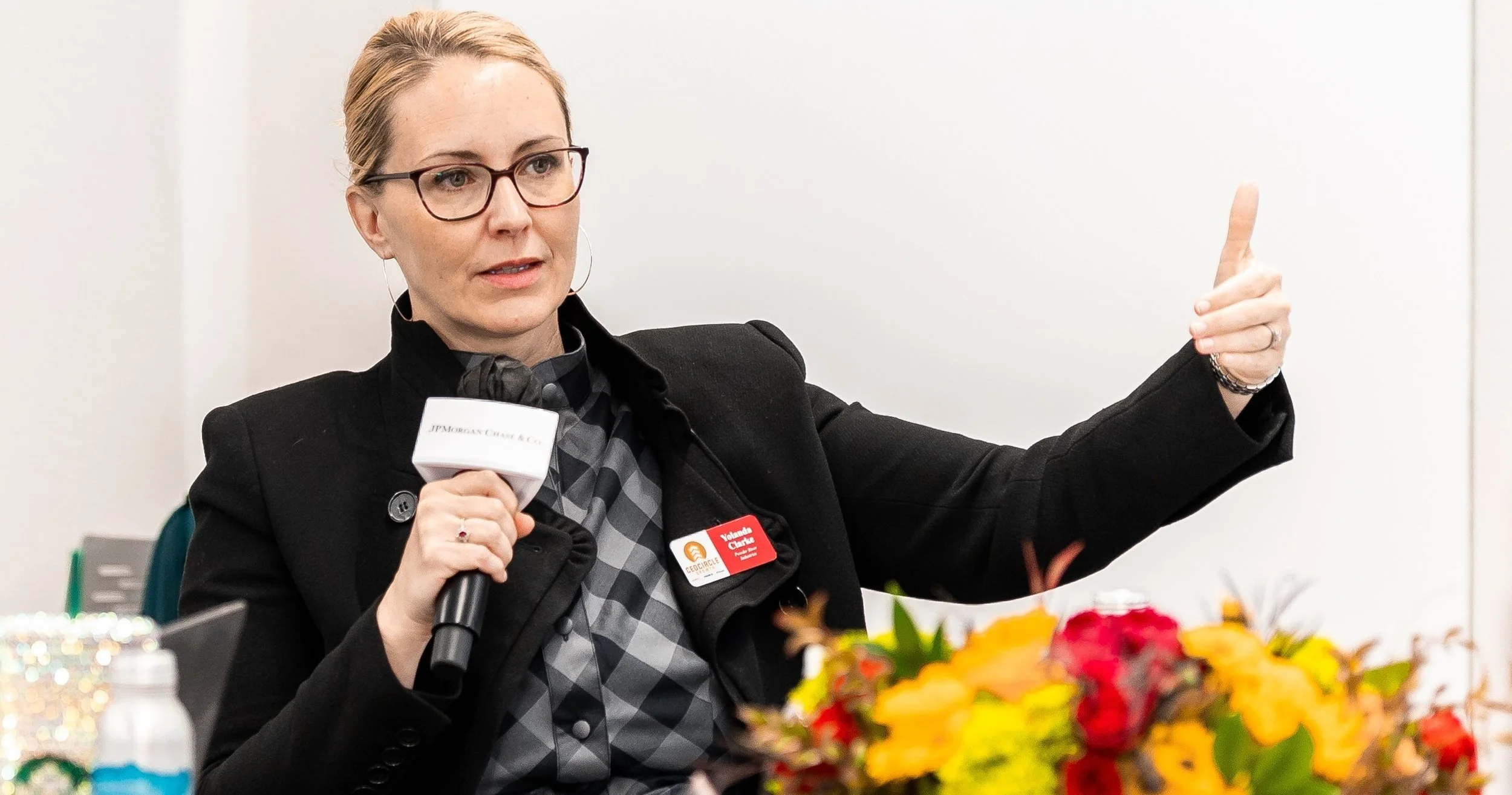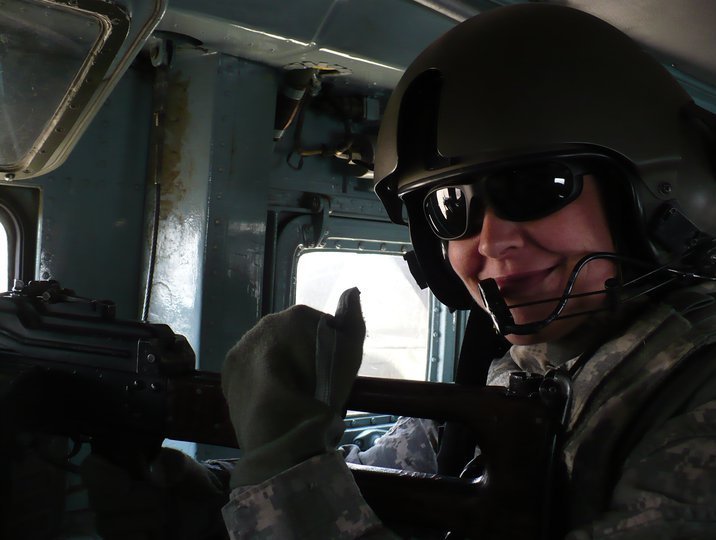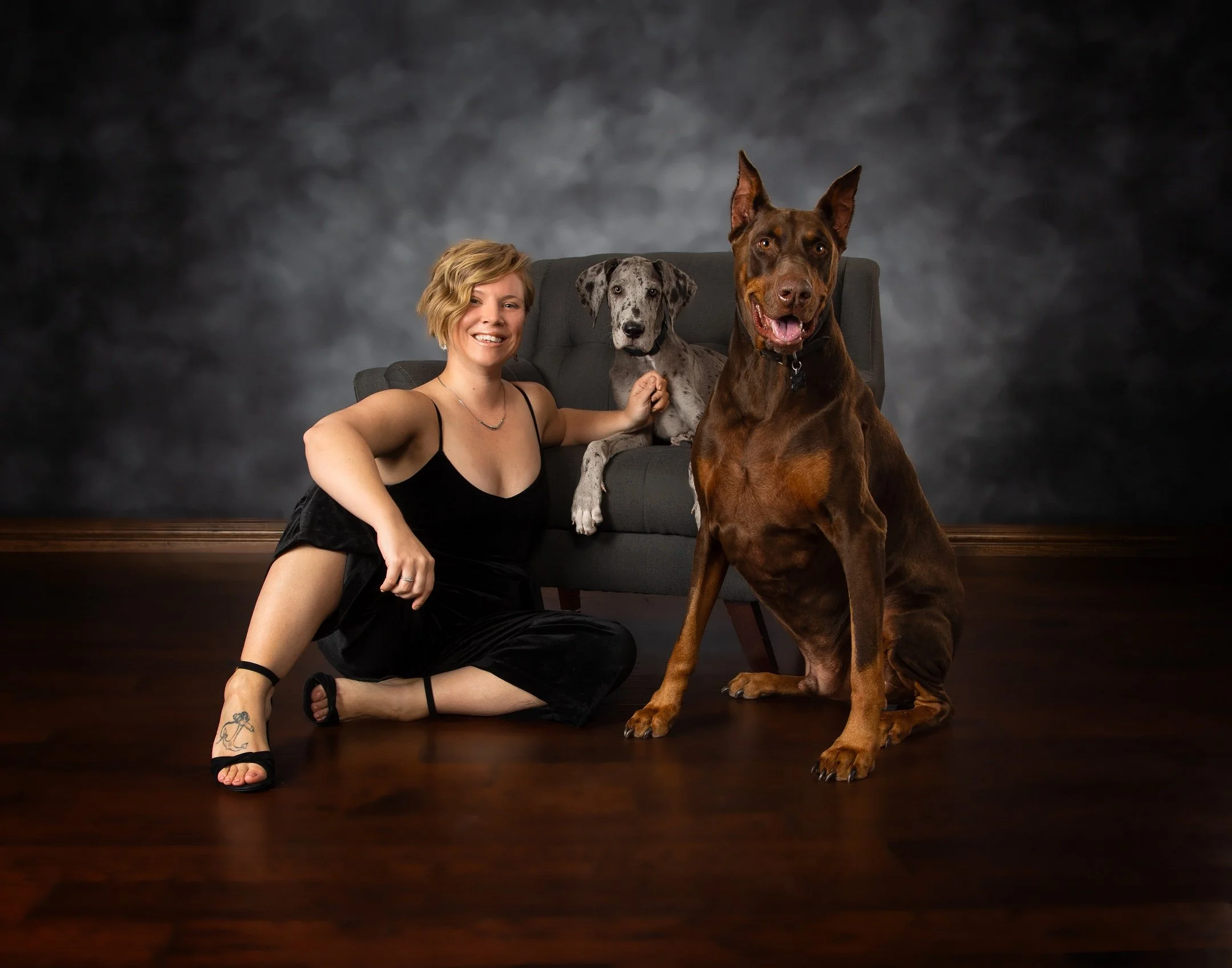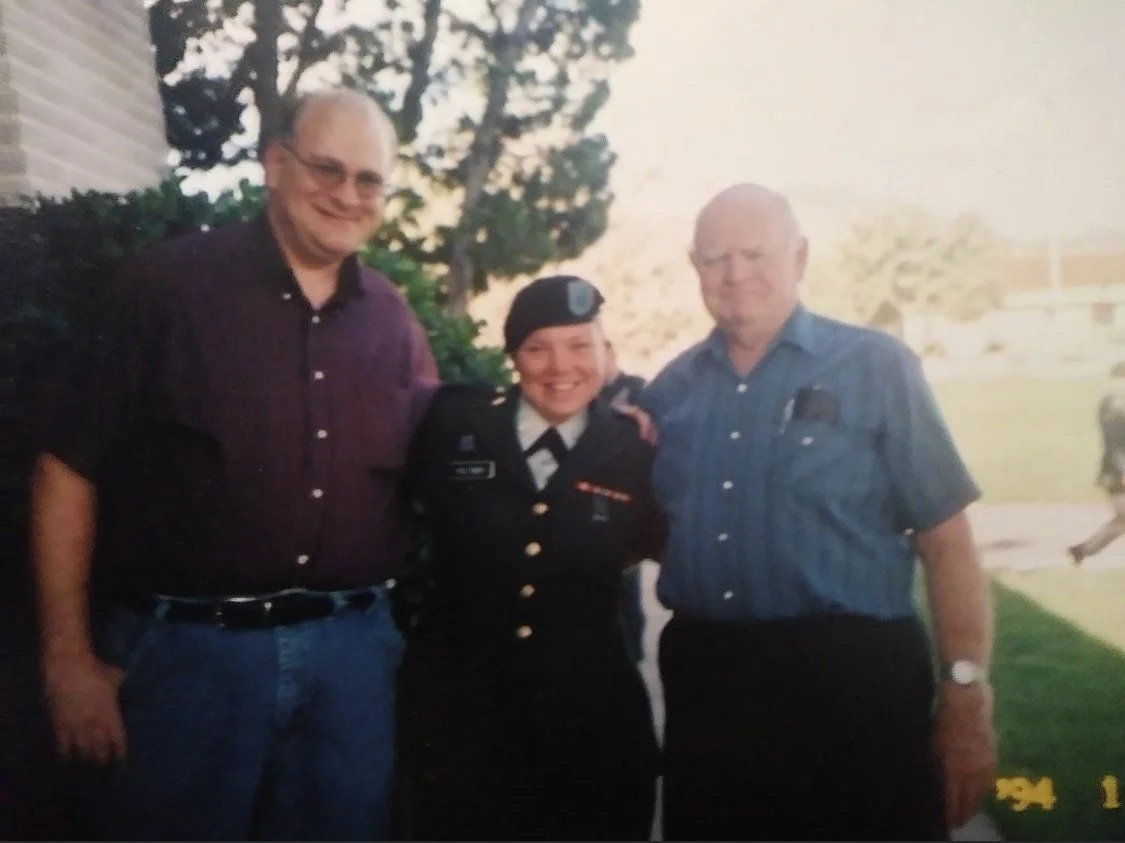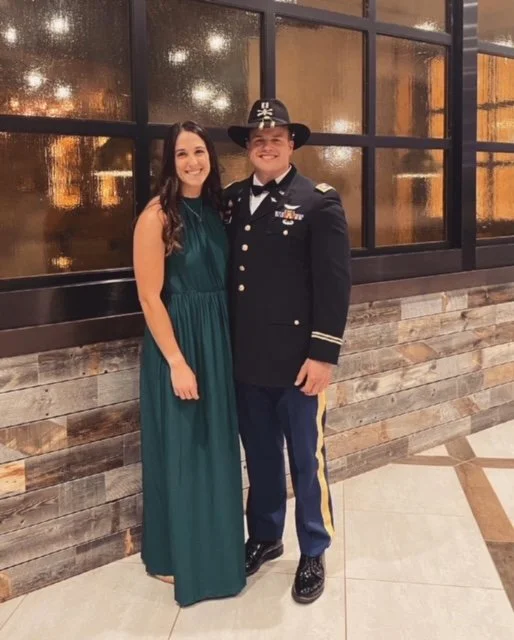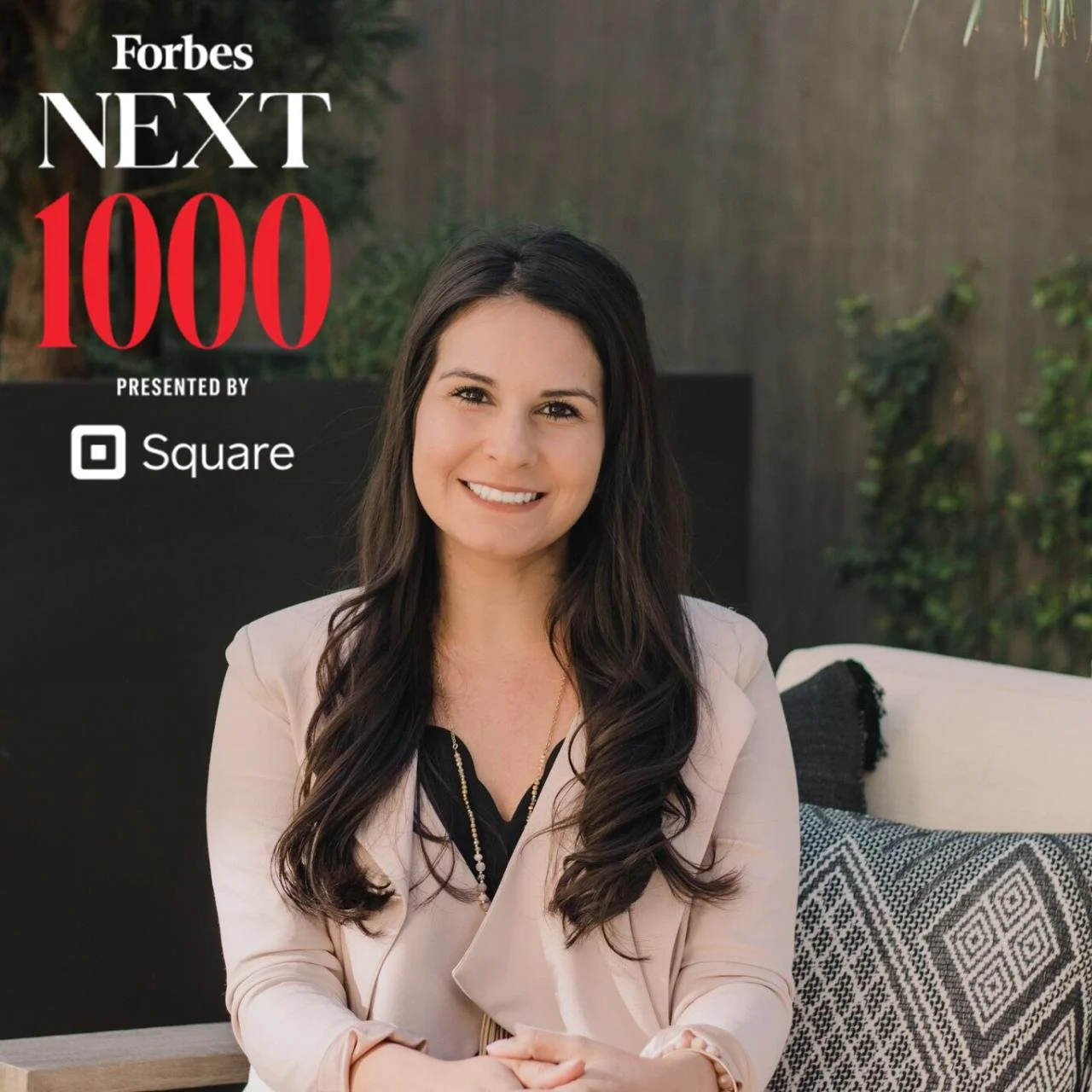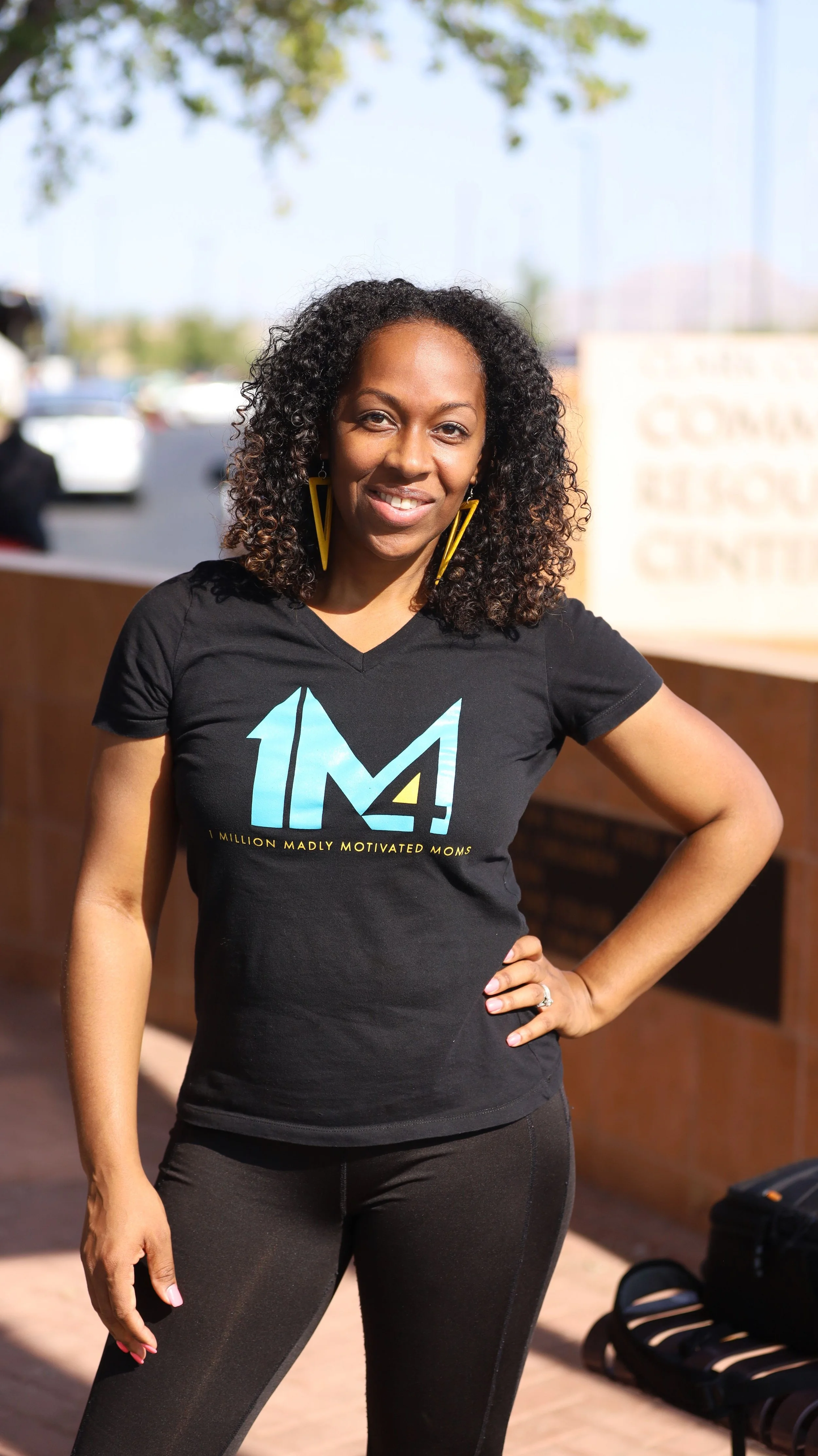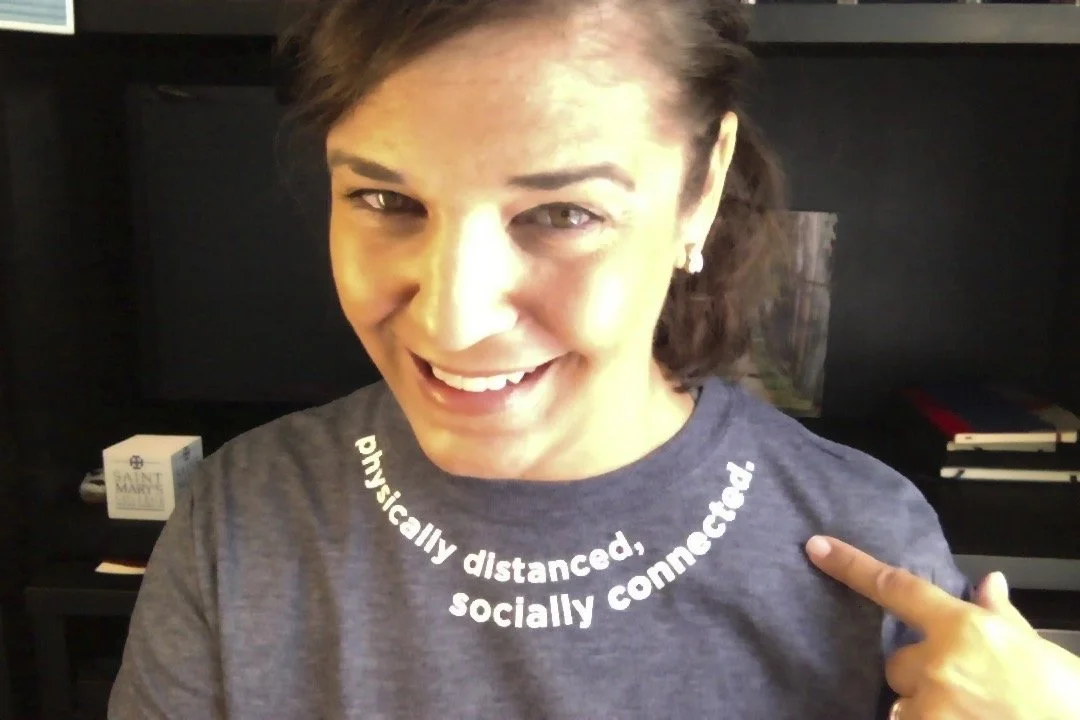Women Who Are Crushing It! 8 Female Veterans/Military Spouses Turned Entrepreneurs
SheVentures showcases 8 female entrepreneurs who pivoted from military life to starting a business. Support their businesses this Memorial Day Weekend.
Updated 5/28/2022
With Memorial Day around the corner, Americans will honor the bravery of those who served our country and made the ultimate sacrifice. We wanted to take this moment to honor some brave women who’ve served in our armed forces. In addition to their valiant efforts connected to the military, these ambitious women continue their bravery by embracing entrepreneurship.
About 22 percent of veteran entrepreneurs are female, according to a recent survey of 1,859 veterans conducted by Syracuse University. SheVentures spoke with a handful of this 22 percent. These eight women share their experiences and insights about bridging military service, entrepreneurship, and womanhood — and you can support their businesses, listed below :⬇️
Yolanda Clarke, Powder River Industries, LLC
Name: Yolanda Clarke
Military Service: I served in the Army and Air Force for a total of 27 years. I am currently a United States Marine Corps active duty spouse.
Company: Powder River Industries, LLC
Company Description: Powder River Industries is an information technology products and services firm performing data science, value-added reselling, and other cyber services. Powder River Industries has locations in Wyoming, Arizona, Nebraska, Missouri, Pennsylvania, Maryland, New Jersey, Virginia, and Florida.
What does your business do? How many years in business?
Powder River Industries has provided information technology services for six years. The company was profitable in nine weeks! We maintained steady growth and built infrastructure for explosive growth.
Why did you decide to become an entrepreneur?
When I became a milspouse, my career degraded quickly. It didn’t matter that I was a veteran, experienced, educated, etc. I hypothesized an environment where I, and others like me, could be professionally challenged, make an impact, and keep up with the demands of milspo life. Then I built it and continue to improve on that idea every day.
What is the distinctive/competitive edge of your product or service?
We are a Certified ISO 9001 quality standard company. We have cleared resources, global coverage, and meet socio-economic goals in government contracting.
Did military service/life help you as an entrepreneur? Why or why not?
It taught me the discipline of patience and how to manage my time in environments with polarizing demands.
What has been your greatest entrepreneurial success?
Being able to provide career opportunities with benefits and salaries to help people pay their mortgages all over the country.
What has been your greatest entrepreneurial regret?
Trying to make partnership agreements too early on with people who don’t understand the business operating environment we are in and the lifestyle demands that being a military spouse comes with.
What tips do you have to other entrepreneurs — servicemembers or not — about starting and growing a business?
Focus on getting one “win.” Build the rest of your growth around that.
What has your experience been like as a woman both in the armed services and as an entrepreneur. Any tips?
I am just now finding the words to explain that. We didn’t have the language at the beginning of my journey that we do now to describe it. We are all learning more about what unconscious bias is, how to identify it, how to talk about it, and how to choose to grow out of it. Today, I’m learning how to forgive it, let go of how it may have impacted me in the past, identify it in myself and my workplace, manage it, and thrive.
Kathryn Bruner, Kathryn Bruner Realty LLC
Name: Kathryn Bruner
Military Service: I served in the U.S. Coast Guard for 8.5 years in Oregon, Washington, California, Virginia, and North Carolina.
Company: KBR, Kathryn Bruner Realty LLC
Company Description: KRB is a veteran-owned real estate firm located in Wilmington, NC.
What does your business do? How many years in business?
KBR is an elite veteran-owned real estate firm. Whether you are a first-time home buyer or a longtime real estate investor, KBR will help you leverage each transaction to monopolize your highest financial gain in the least amount of time. KBR personally invests in the real estate market. We are working alongside our clients pivoting with the market to capitalize where possible. Buying and selling real estate is not about buying a home; it’s about building financial freedom. KBR has worked with military families for more than a year and a half of being in business.
Why did you decide to become an entrepreneur?
After serving my country, I knew I needed a mission with a broader purpose. I needed to serve beyond the task of a “job” and make sure my contribution to my community was making a difference. That, and I never wanted a boss again. Those combined desires drove me toward entrepreneurship.
What is the distinctive/competitive edge of your product or service?
As a real estate investor myself, I have seen every end of the market: flips, rentals, short sales, and foreclosures. As a veteran, I am familiar with the VA loan process. My clients have a competitive edge by signing with me because no matter what end of the market they choose, I have the knowledge and experience to ensure the best outcome and highest quality of service.
Did military service/life help you as an entrepreneur? Why or why not?
In the U.S. Coast Guard, I ran search and rescue missions from small boats, helicopters, and a state command center. I perform my best under immense pressure. In the civilian world, when the stakes get high, people panic. For me, the more intense the situation the clearer my vision.
What has been your greatest entrepreneurial success?
My greatest success is creating affordable housing opportunities for families that may have never been able to buy had we not connected.
What has been your greatest entrepreneurial regret?
Not branching out on my own sooner.
What tips do you have to other entrepreneurs — servicemembers or not — about starting and growing a business?
Never stop learning. Listen. Read. Travel. Always be kind.
What has your experience been like as a woman both in the armed services and as an entrepreneur. Any tips?
My service experience was intense. Unfortunately, I was medically retired for post-traumatic stress disorder due to military sexual trauma. I loved my job in the U.S. Coast Guard, I loved the mission, and I loved serving my country. I am grateful to be where I am now as a female veteran business owner of a real estate firm. The challenges in and out of the military are multifaceted for females. But being respectful, keeping your head high, working hard, and never losing faith in yourself can take you to powerful places.
My volunteerism is a large part of what’s helped build my business. I volunteered with Bunker Labs, local horse rescues, community emergency response teams, etc. Helping others feeds your soul and your business.
Gabriela Bell, Organized Q
Name: Gabriela Bell
Military Service: Air Force Military Spouse and Family Member
Company: Organized Q
Company Description: Organized Q provides virtual executive assistant services to small business owners, executives, and social impact organizations. Organized Q’s headquarters are located in Washington, DC.
What does your business do? How many years in business?
Organized Q seamlessly integrates into client teams to help clients save time and money, maximize efficiency, and focus on growing their businesses. Organized Q’s social impact is to provide military spouses, veterans, and other underemployed individuals with flexible remote work opportunities that promote a healthy work-life integration. We have been in business since 2017.
Organized Q’s traction includes continued growth from month to month. Within the last 12 months, Organized Q’s revenue increased by 210 percent. Organized Q has 25 customers in 12-month contracts with a contract value averaging $10,000 per customer.
Why did you decide to become an entrepreneur?
In 2016, I hit rock bottom. I was in denial, but the truth was I was living in a volatile marriage. Being able to financially provide for my children was most important among all of the unknowns. When you’re a military spouse, it’s much more complicated because military life is predictably unpredictable. Many military spouses (mostly women) give up their careers to support their service member’s career and their families because of frequent moves and deployments. Military spouses face an 22 percent unemployment rate, almost six times the national average, despite being highly educated and having past work experience. A family living off of one income is tight. Living off of a single military income is more complex and requires more sacrifice and budgeting, especially when considering outside childcare costs. Add war into the mix and the sacrifices grow exponentially. Add in a soldier returning home with hidden wounds like traumatic brain injuries, post-traumatic stress disorder, and addiction, the burden often lands on a families’ shoulders.
I made the decision to leave. My four children and I were safe, but we were penniless, homeless, and had no family living close by. When you’re backed into a corner, you’ll do anything to survive and I took on every part-time gig I could: substituting, tutoring, even a gig as a virtual assistant.
As I was piecing my life together, I took that virtual assistant gig and began a career as a virtual executive assistant. I then realized other military spouses needed flexible remote work that could handle the uncertainty of military life while continuing to be the glue that helps keep military families together. After my divorce, I founded Organized Q and began vetting and training other military spouses to become top-level virtual executive assistants. Our team went from me to a team of 15 highly talented military spouses and underemployed professionals.
In 2021, Organized Q was listed as a Forbes Next 1000 business, and wowing-ly hit six figures in revenue before the end of the third quarter. Organized Q might be small, but we are mighty. We provide excellent services to our clients — and equally as important — we create flexible remote work opportunities for military spouses and underemployed professionals (mostly women) who can now establish portable careers and financial stability that can withstand the unpredictable reality of military life.
What is the distinctive/competitive edge of your product or service?
Organized Q differentiates our business from our competition because our team consists primarily of experienced military spouses, veterans, or underemployed professionals. We value building personal relationships with our customers/clients, and our Organized Q team seamlessly integrates into our client’s team. Organized Q’s social impact mission is in providing flexible remote work opportunities to military spouses, veterans, and underemployed professionals.
Did military service/life help you as an entrepreneur? Why or why not?
Yes. Having been part of the military community since I was born helped me as an entrepreneur. Since childhood, I’ve reinvented myself with every move, change of school, work, and family dynamic. The resiliency and creativity that military family members often create has helped me quickly solve problems and adapt — which is key to running a successful business.
What has been your greatest entrepreneurial success?
My greatest entrepreneurial success is going from a solo-entrepreneur to the leader of a company of 30 in less than two years while providing flexible remote work opportunities.
What has been your greatest entrepreneurial regret?
My biggest entrepreneurial regret is being fearful of entering unknown territory and succumbing to imposter syndrome.
What tips do you have to other entrepreneurs — servicemembers or not — about starting and growing a business?
Ask for help! The available resources are numerous and people want to see you succeed.
What has your experience been like as a woman both in the armed services and as an entrepreneur. Any tips?
Being a woman connected to the military and an entrepreneur is challenging. There are many obstacles, lots of no’s, and endless you can’t do that’s that come from all directions. I find that education is power and community is key. Find people who will uplift you and want to see you succeed. Empowered women empower women is so true: Find them, be one, and encourage others.
When one has the grit and determination to make the world a better place, innovation happens. I believe once you are part of the military community, you stay connected. A marital status change does not take away the fact that one lived and adapted to military life. Find and build communities that are inclusive — that’s what we do at Organized Q.
Rochelle Hicks, Fetch! Pet Care Frisco
Name: Rochelle Hicks
Military Service: I served in the U.S. Army for 10 years stationed in Grafenwoehr, Germany, Iraq, Kuwait, and Fort Gordon, GA.
Company: Fetch! Pet Care Frisco
Company Description: Fetch! Pet Care Frisco, located in Frisco, TX, offers a variety of services for all types of pets.
What does your business do? How many years in business?
Fetch! Pet Care Frisco, which I launched this year, offers a range of services for furry family members, including puppy check-ins, private dog walking, pet sitting, overnight care, and pet transportation. Also, as a certified dog trainer, I provide behavioral training services.
Though we just launched, we already have clients for dog walking and pet sitting services, and respond to routine inquiries about behavioral training. Our goal is to be established in our community, providing exceptional service and reliable care. Ultimately, I hope to grow the team, adding walkers, sitters and other specialists.
Why did you decide to become an entrepreneur?
When I learned of Fetch! Pet Care, I knew the franchise was a perfect fit for me, as I was impressed by the business platform and eager to work in the pet care industry. I did not want to miss this opportunity to start my own business. After I medically retired from the Army, I was lucky enough to find a service animal program in Augusta, GA. My service animal, Colonel, is my shadow, my comfort, and my companion. Colonel is an integral part of my life. Our bond is special, and I will always value our friendship. Fetch! Pet Care understands the human-animal bond. Becoming the owner of a company that shares my values means the world to me.
What is the distinctive/competitive edge of your product or service?
As a franchisee, I benefit from my colleagues’ key learnings as well as our company’s extensive resources. This helps ensure my team is able to provide clients with the best possible service. Additionally, I hire local community members who build trust and confidence with each pet, and more importantly with pet parents. We ensure our services enable the pet to continue thriving in their normal routine.
Did military service/life help you as an entrepreneur? Why or why not?
Absolutely! The military is very structured and orderly. Joining the military I had to learn very quickly to pay attention to detail. When managing a business, particularly your own, every detail matters.
What has been your greatest entrepreneurial success?
As a new entrepreneur, I feel my greatest success was taking the first step to become a small business owner. Before launching Fetch! Pet Care Frisco, I wondered what it would be like to be my own boss, make my own schedule, and truly love my job. Today, as the owner of the Fetch! Frisco, I am my own boss, I enjoy a flexible schedule, and I have the privilege of taking care of animals.
What has been your greatest entrepreneurial regret?
I regret waiting as long as I did to launch my own business. I found excuses to hold off from taking the leap: my life was too busy, circumstances weren’t right, I was unsure how it would affect my family. But after learning about Fetch! Pet Care, I knew I had to go for it, no matter what.
What tips do you have to other entrepreneurs — servicemembers or not — about starting and growing a business?
Do you research and if the opportunity feels right, go for it!
Allie Potter, fuelED
Name: Allie Potter
Military Service: I am a military spouse. My husband is active duty in Army Aviation.
Company: fuelED
Company Description: fuelED provides nutrition education and coaching. fuelED is online/remote but located in Nashville.
Special Offer: Mention “SheVentures” and receive 10 percent off your first three months of standard or elite coaching. Can’t be combined with any other offer, and the offer can only be used once per person. Good through December 31, 2022.
What does your business do? How many years in business?
fuelED helps people develop sustainable healthy habits for long-term success. We’ve been in business for two years. We’ve doubled our number of active coaching clients in the last 10 months.
Why did you decide to become an entrepreneur?
My husband is still active duty, so transition and change are a regular part of our everyday life. Entrepreneurship allows me to be both a supportive wife/partner and a career-focused woman building my own professional legacy.
What is the distinctive/competitive edge of your product or service?
Reliable and relevant nutrition information is accessible to nearly all who want to lead a happier, healthier life. Nutrition coaching is not only for elite athletes. We work with individuals, and partner with both gyms and employers, to bring scientifically backed personal nutrition coaching to everyone in an affordable yet effective way.
Did military service/life help you as an entrepreneur? Why or why not?
While I have not personally served, the need to be flexible and “go with the flow” as a military spouse prepared me for the uncertainty that accompanies entrepreneurship. It’s helped me be more comfortable with the unknown, so I can continue to push forward.
What has been your greatest entrepreneurial success?
To me, my greatest success is the testimonials of the clients whose lives we’ve changed in meaningful, tangible ways. (You can read some of our testimonials here.) There’s nothing better than feeling like our work actually matters.
What has been your greatest entrepreneurial regret?
I think that part of me didn’t believe that I’d be able to build the success we’ve had so far. Now that we’re preparing to expand the team and scale to the next level, I’m having to build out the admin/operational infrastructure to support our business. I wish I had more belief in myself at the beginning!
What tips do you have to other entrepreneurs — servicemembers or not — about starting and growing a business?
Know what you do best, and what you don’t. Figure out where you have a competitive advantage, focus on those parts of the business, and outsource the rest to partners.
What has your experience been like as a woman both in the armed services and as an entrepreneur. Any tips?
There seem to be a lot of misconceptions about female-run lifestyle businesses and whether or not they count as “real” businesses. As a woman and a military spouse, people often expect me to be a spouse first; so I’m constantly trying to convince them (and myself!) that I am both a great spouse and a growing professional, working to build a meaningful company. It’s entirely possible to be both.
Monica Fullerton, Spouse-ly
Name: Monica Fullerton
Military Service: I am an active duty Air Force spouse stationed in Las Vegas.
Company: Spouse-ly
Company Description: Spouse-ly is an online marketplace with products and services created by military and first-responder families.
What does your business do? How many years in business?
Spouse-ly is an online market to shop a variety of products and services created by military and first-responder families. We have been in business for two years. We have had a 550 percent vendor growth rate since our launch. We have had more than 60 percent growth in revenue year-over-year.
Why did you decide to become an entrepreneur?
I left my corporate career to pursue entrepreneurship. I am truly passionate about helping others grow and thrive no matter where military life takes us.
What is the distinctive/competitive edge of your product or service?
Our one-of-a-kind marketplace brings together product vendors and services vendors who are approved military and first-responder families. Through our platform, anyone can shop small and make a big impact!
Did military service/life help you as an entrepreneur? Why or why not?
There are a lot of great resources for military connected entrepreneurs like Bunker Labs. Having the support that you need along the way is huge.
What has been your greatest entrepreneurial success?
Forbes Next 1000 List, Mighty 25 List by We Are The Mighty, and putting more funds in the pockets of our heroes!
What has been your greatest entrepreneurial regret?
Not going with my gut and getting taken advantage of as a first-time founder.
What tips do you have to other entrepreneurs — servicemembers or not — about starting and growing a business?
Surround yourself with people who can help you grow and thrive and are willing to find ways to help you get there. Ask for help when needed and don’t be afraid to go after what you want!
What has your experience been like as a woman both in the armed services and as an entrepreneur. Any tips?
Being a female entrepreneur has been both rewarding and challenging. I am so grateful that I am able to show my children firsthand what it takes to follow your dreams. On the other hand, some of the challenges women entrepreneurs face are disheartening. It’s like we have to fight 10 times harder because we are juggling a lot while growing a business.
Always remember that you can follow your dreams even if it might seem impossible at times. Trust me, I have been there and I am still there sometimes, but you learn to pivot and overcome any obstacles that get in your way. Passion and grit will keep you pushing in the right direction.
Tansy McNulty, 1 Million Madly Motivated Moms
Name: Tansy McNulty
Military Service: My husband is active duty U.S. Air Force. We are currently stationed in Las Vegas. My husband served first in the Marine Corps Infantry then after earning his bachelor’s and master’s degrees, he joined the Air Force as a pilot.
Company: 1 Million Madly Motivated Moms
Company Description: 1 Million Madly Motivated Moms (1M4) unites Black women who are working to combat social and political injustice and is located in Las Vegas.
What does your business do? How many years in business?
1M4, established in 2018, unites Black mothers and allies to end police violence by the year 2038 through educating on legislative policy, assisting impacted families, and raising our children to be interested in the justice system and integrity-centered politics. Our mobile crisis response guide has garnered more than 3,000 unique visits with 68 percent direct visit metric. Our work has been referenced in academic research and legislative policy draft work.
Why did you decide to become an entrepreneur?
Being a military spouse, relocation is inevitable. Living an impactful life is a must for feeling fulfilled. I needed to create an organization that has measurable impact while allowing mobility and flexibility of residence.
What is the distinctive/competitive edge of your product or service?
1M4 compiled and released a public facing resource guide for mental health emergency response as an alternative to police response. We are moms who decided to take it upon ourselves to create solutions that save lives and reduce harm in marginalized and under-resourced communities. Our mental health focus and mini-grant offerings set us apart from other organizations in human rights work.
Did military service/life help you as an entrepreneur? Why or why not?
Military life has helped me be less apprehensive of ambiguity. I expect to have to pivot with little time for transition, so it helps me embrace the ebbs and flows of running an organization.
What has been your greatest entrepreneurial success?
My greatest success thus far is being able to educate the public on legislation that directly impacts safety that will save lives and create safer response systems for the country’s most vulnerable populations.
What has been your greatest entrepreneurial regret?
Delaying the start of my organization because of self-doubt and grief. I wish I knew when starting that everyone has similar fears, and the sooner I work through the fear, the sooner I get to operate fully in my unique gifts and save lives.
Rachel Bell, The RVB Group
Name: Rachel Bell
Military Service: My husband served in active duty in the Army for 21 years in Washington, DC, and Texas. We’ve been married for 20 years.
Company: The RVB Group
Company Description: The RVB Group is a consulting firm for public relations and marketing communications located in San Antonio.
What does your business do? How many years in business?
The name of my company is The RVB Group, founded in 2005. I’m chiefly a sole proprietor, but it has the word “group” in it because I can subcontract work to specialized resources as needed. My company is the communications and public relations counsel for organizations that value exceptional content. A key personal metric for me early on was being able to earn as much on my own as I did the last time I worked for somebody else. This year, I’m on track to triple that number.
Why did you decide to become an entrepreneur?
My husband’s military service came with a long commitment, which required me to ensure my career could be portable and flexible. I have a master’s degree in English, an undergraduate double-major in English and communications, and global public relations agency experience.
Military families tend to move every two to three years. I thought the best way to use my experience was to work for myself specializing in content. I didn’t plan to stay self-employed forever, because I expected to move back to DC. Finding the D’Aniello Institute for Veterans and Military Families (IVMF) at Syracuse University helped validate my pathway into entrepreneurship. The program provided resources and an extended community of support.
What is the distinctive/competitive edge of your product or service?
In my industry, people need strong writing, but most people either don’t want to write or can’t do it well. I meet both of those needs as a content specialist. Since I have a public relations agency background, I understand how to seamlessly integrate with a large, multidisciplinary communications team. My ability to translate military/civilian speak is a unique skill based on my military life, and I can better understand and communicate with military-connected audiences.
Did military service/life help you as an entrepreneur? Why or why not?
In my experience, being a military spouse doesn’t help your professional life. I’ve faced discrimination and negative stigmas. I was once told I shouldn’t mention my military connection because nobody would want to hire me if they think I’m leaving in six months. That turned out to be true. Also, when people hear “military spouse,” they often assume I don’t want to be paid what I know I’m worth, that I should be grateful to apply for an internship, or earn minimum wage. Research from the IVMF shows that military spouses earn 38 percent less than our civilian counterparts, who are already underpaid compared to their male counterparts, and the disparity is greater with more education. They also find that many of us would just as soon not mention our military connection. Knowing I’m not alone in that experience is extremely comforting.
On the other hand, being a military spouse helps my entrepreneurial life. For one, it’s given me the mindset to mitigate uncertainty. Military households navigate constant uncertainty: Though the service member has stability in their career progression and mission (they’ve got a stable career trajectory, work for the same employer even if it takes them to different places), the military household has to master contingency planning. What if we have to move? What happens when (not if) he deploys? What can we control? What is out of our control? I prefer to focus on the things I can control — and manage them. We have to be OK with not knowing and plan for different outcomes, like any entrepreneur. Also, during the pandemic, I was accustomed to working in a fully remote environment for clients I’ve served across the country. We hear about resilience in the last two years. Military spouses are resilient anyway, so exhibiting resilience in my work is a natural extension of how I already live my life.
What has been your greatest entrepreneurial success?
I’ll illustrate two:
1) Early on, one of my mentors said she lets one client go every year for one reason or another. At the time, I thought, “It must be nice to have so many clients you can let one go.” Now, I can do this. Last year, I chose to give a long-term contract with a large organization to my subcontractor to fully manage. As a sole proprietor and his family’s breadwinner, the opportunity was transformational for him. It might seem like a strange measure of success, but it showed me how far I’ve come.
2) When I partner with agencies, I am helping them win clients — and I’ve learned the hard way to ensure my consultative work is recognized and paid. When I went to an IVMF conference for military-connected entrepreneurs, I learned about teaming agreements and developing contracts to help ensure you are compensated for what you help win. What a game-changer. I was approached by not one but two agencies to help pitch the same business, and it required in-depth knowledge of the military community. One agency would sign my agreement, and the other would not. The agency and I pitched and won the work, and I was paid. This felt like a huge entrepreneurial success, and it would not have been possible without what I learned from the IVMF.
What has been your greatest entrepreneurial regret?
I don’t like the word regret, as everything is a learning experience. I wish I had more fully invested in being present in my local community. Growing up outside of Chicago and moving to Washington, DC, after college, being sent to Texas for my husband’s military service was like coming to a different country. We were supposed to be here for only three years, so I considered it a brief stop before we returned to DC. I didn’t plan to work for myself forever. Entrepreneurship is a way to hone my professional skills, use my master’s degree and move to the next duty station. I didn’t want to stay in Texas, and I didn’t embrace all the opportunities and professional networks as early or as fully as I could have.

